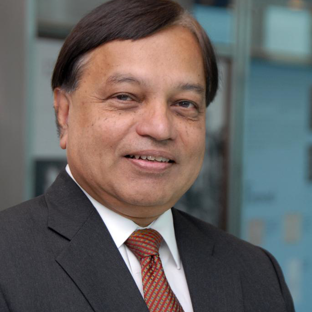A highly infectious disease that started in the tropics of Southern China is sweeping the globe, with a rapidly rising death toll. The World Health Organisation warned us about Disease X – a previously unknown pathogen – and now it’s here. We knew it was coming, but we didn’t know what form it would take. So, how does Australia protect itself? And how well placed are we to cope with a true pandemic?
At the third event in our This Is Not a Drill series, Ali Moore and our expert panellists will confront a hypothetical public health emergency. Join Moore’s crack team as they devise a plan to protect the population and stem panic in the face of a pandemic.
This event is presented in partnership with Asialink, the University of Melbourne.
Featuring

Ali Moore
Ali Moore has more than 25 years experience as a journalist and broadcaster, working for the Australian Broadcasting Corporation, Australia's Nine Network, and for the BBC's global news network, based in Singapore. She has covered major news and current affairs events across the region, reporting from Australia, Singapore, Hong Kong, Malaysia, Indonesia, and China.
She is now a freelance broadcaster and journalist and a Vice Chancellor's Fellow at the University of Melbourne, working with Asialink.
In her more than two decades as a broadcaster Ali has interviewed key decision makers from a range of companies, industries and political theatres. Her previous roles include ABC China Correspondent, host of Australia's premier late night TV current affairs program Lateline, and anchor of some of the country's key business news programs (Business Sunday, Lateline Business).

Malik Peiris
Malik Peiris is Professor and Chair in Virology at the School of Public Health, the University of Hong Kong. His research focuses on the virology, ecology, pathogenesis and epidemiology of influenza, coronaviruses and other emerging respiratory viral infections.
He has a particular interest in emerging viral infections at the animal-human interface and in 2003, he played a key role in the discovery that a novel coronavirus was the cause of SARS, helping to understanding its pathogenesis and control. In collaboration with his colleagues at the School of Public Health, his research has elucidated the emergence, transmission and pathogenesis of avian influenza viruses H5N1, H9N2, H7N9 and the pandemic H1N1 virus of 2009, and more recently, of the MERS coronavirus.

Kanta Subbarao
Professor Kanta Subbarao is a virologist and a physician and was appointed Director of the WHO Collaborating Centre for Reference and Research on Influenza in 2016. Prior to her arrival in Melbourne, she was Chief of the Emerging Respiratory Viruses Section of the Laboratory of Infectious Diseases, National Institutes of Health (NIH) in the United States from 2002-2016.
Her research is focused on newly emerging viral diseases of global importance including pandemic influenza, severe acute respiratory syndrome (SARS) and Middle East Respiratory Syndrome (MERS).

Russell Basser
Dr Russell Basser has been the Senior Vice President of Research and Development since the formation of Seqirus in 2015. Seqirus is one of the largest influenza vaccine companies in the world and a major partner in the prevention and control of influenza globally.
Dr Basser led the clinical and regulatory programs that led to licensure of CSL’s influenza vaccine globally (Fluvax in Australia, Afluria in the US, Enzira in Europe), Australian approval of the pre- pandemic H5N1 bird flu vaccine, as well as the 2009 H1N1 swine flu pandemic program.
Gary Lum
Dr Gary Lum is a Principal Medical Advisor in the Office of Health Protection. From 1996 to 2007 Gary was the Director of Pathology at the Royal Darwin Hospital and the Supervising Pathologist for the Northern Territory.
In October 2003 Gary was appointed a Member of the Order of Australia in the special Bali Bombing Investiture. Other professional activities have included Chairing the Public Health Laboratory Network (2005 to 2007), Vice Presidency of the Royal College of Pathologists of Australasia (2005 to 2007) and Chairman of Board of Proficiency Testing Australia 2006 to 2007.

Rod Pearce
Dr Rod Pearce is a practicing grass roots GP and a policy adviser. He was President of the Australian Medical Association (SA) from 1998 to 2000, GP Nationally Elected Representative on the Federal AMA and Chair of the AMA Council of General Practice for 3 terms from 2004 to 2010.
In 2008 he was appointed by the then Health Minister, The Hon. Nicola Roxon, to the External Reference Group to develop Australia’s National Primary Health Care Strategy for the national health reforms. Dr Pearce continues to hold the position of Deputy Chair on the board of the Immunisation Coalition as well as positions on several other boards.

Sharon Lewin
Leading infectious diseases expert, Professor Sharon Lewin, is the inaugural Director of the Doherty Institute, as well as a Professor of Medicine at The University of Melbourne and a National Health and Medical Research Council (NHMRC) Practitioner Fellow.
Professor Lewin is also the Chief Investigator of a NHMRC Centre of Research Excellence, The Australian Partnership for Preparedness Research on Infectious Diseases Emergencies, that aims to bring together Australia’s leading experts to address the key components required for an emergency response to infectious diseases.
